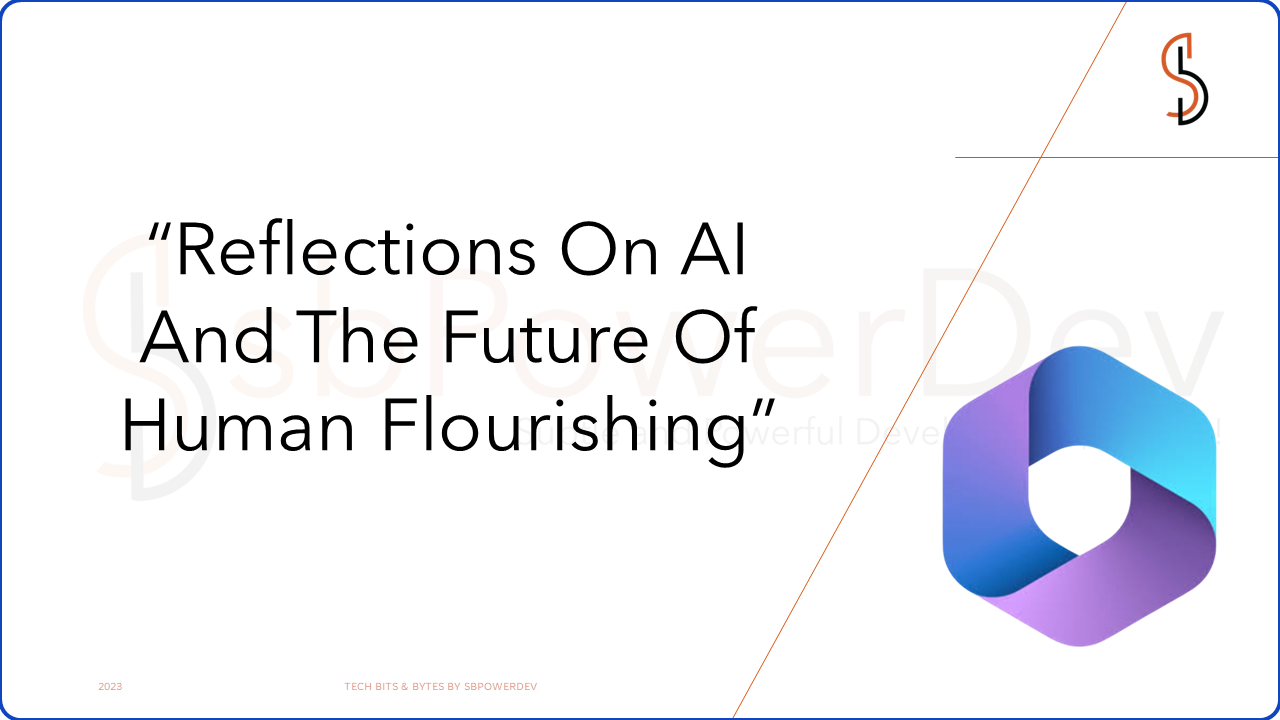
As we consider artificial intelligence’s transformational potential, recent advancements have both inspired astonishment and concern. AI has the potential to significantly improve human lives, but this hope is tempered by worries about potential threats and obstacles. It is essential to unite a diverse range of views and ideas in order to foster a future in which AI is used to the advantage of individuals and society.
The “AI Anthology,” a collection of 20 motivational articles written by eminent academics and industry experts from a range of fields, with this objective in mind. The anthology examines the various ways that AI might be used to advance humans while highlighting potential drawbacks. Our goal in bringing these various points of view together is to inspire deliberative discussions and foster teamwork that will direct AI toward a future that fully realizes its potential for human development.
In the fall of 2022, while chairing Microsoft’s Aether Committee, I first came across GPT-4, a stunning large-scale language model. Early access to OpenAI’s most recent invention was granted to the Aether leadership and technical teams, who were tasked with examining any difficulties and larger societal effects of its use. Our research was based on the Microsoft AI Principles, which were developed in 2017 in partnership with Microsoft’s leadership. We performed a thorough review of GPT-4’s capabilities, paying particular attention to any potential risks, inaccuracies, privacy concerns, and unfairness issues that applications using this technology might introduce.
I was in awe of GPT-4. I discovered unanticipated intelligence beyond that of earlier AI systems. I saw a huge improvement in features when compared to its predecessor, GPT-3.5, which was used by tens of millions of people as ChatGPT. Its capacity to decipher my intentions and offer sophisticated responses to a variety of stimuli gave me the impression that it was going through a “phase transition,” reminding me of emergent phenomena I had observed in physics. I discovered that GPT-4 is a polymath with a surprising ability to combine notions and approaches that have historically been incompatible. It skillfully combines concepts that cross disciplinary boundaries.
The extraordinary powers of GPT-4 prompted inquiries about potential disruptions, negative effects, and chances to advance society and the human race. I focused on difficult problems in the fields of medicine, education, and the sciences while the rest of our team rigorously investigated safety and fairness concerns. It became more and more clear that the model and its offspring, which would probably show greater leaps in capability, have tremendous potential to be transformative. This got me thinking about the implications for society as a whole.
Questions about artistic production and credit, villainous characters, the economy and employment, and unimaginable possibilities began to cross our minds. How would society respond if generative AI technologies become mainstream and cease to be the unrivaled source of creative and intellectual thought and creation? How might these developments impact our sense of self and personal goals? What potential short- and long-term job market effects exist? How could people receive credit for the innovative ideas that AI systems will be absorbing? How may bad actors abuse these new abilities to cause harm? What are some significant possible unintended consequences of the usage, including some that we may not have yet anticipated?
At the same time, I had visions of the future in which, by utilizing this technology, people and society would flourish in incredible ways, just as they had done with past ground-breaking inventions. The printing press, the steam engine, the electricity, the internet, and the most recent developments in AI are the culmination of these transformative influences, which start with the first tools of cognition—our shared languages, which enable unprecedented cooperation and coordination—and continue through the tools of science and engineering.
We started the “AI Anthology” project with the help of OpenAI because we were eager to explore these possibilities in conjunction with people from a variety of fields. Twenty specialists were asked to discuss the capabilities of GPT-4 and the potential impacts of later versions on humanity. Each participant received early, confidential access to GPT-4, case stories from my research in education, science, and medicine, and instructions to concentrate on two fundamental questions:
- How might this technology and its offspring contribute to the advancement of humanity?
- How can society best direct technology to serve humans as much as possible?
These queries highlight the significance of long-term thinking and maintaining an optimistic perspective on AI’s potential to improve human lives, building upon the concepts presented in my Tanner Lecture at the University of Michigan in November 2022 (Arc of Intelligence: Humanity and its Tools of Reason and Imagination). We could realize enormous potential advantages. However, in order to fully utilize this potential, we must develop technical advances and regulations that guard against improper applications and unforeseen consequences.
This collection of essays is evidence of the potential of creative thinking and teamwork as well as the value of various viewpoints in influencing the direction of AI. The 20 pieces present a wealth of knowledge, aspirations, and worries, illuminating the challenges and opportunities brought on by the quick development of AI.
I urge you to have an open mind as you read these pieces, have thoughtful dialogues, and contribute your views to the continuing discussion about how to use AI technology for the good of humanity. AI’s future is not predetermined; rather, it is a trip that we must take together with insight, foresight, and a strong sense of accountability. I hope that the concepts presented in these pieces help us all better grasp the difficulties and opportunities we confront. They can direct our efforts toward developing a world in which AI technologies enhance human intelligence and creativity to encourage human wellbeing.
Greetings and welcome to the “AI Anthology.” May it move you, test you, and start important debates that move us toward a future where mankind thrives by utilizing AI in innovative and useful ways.















